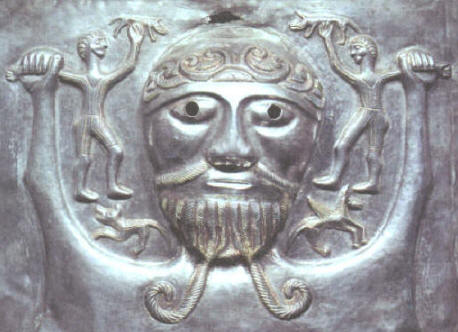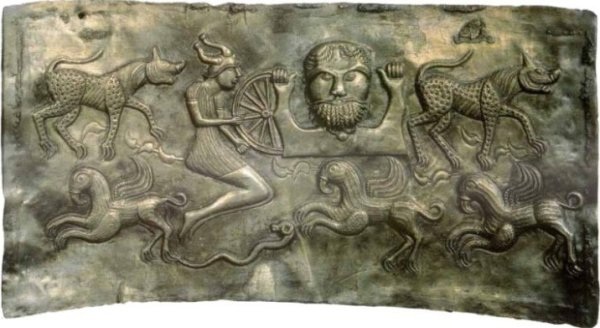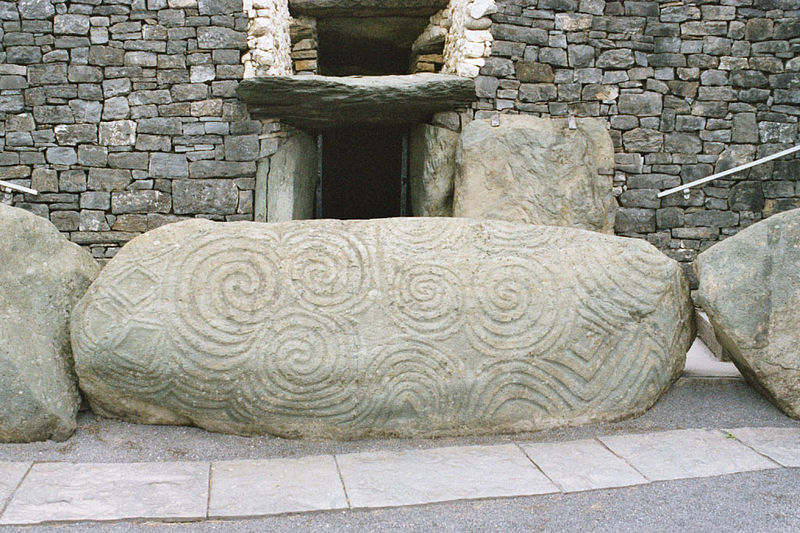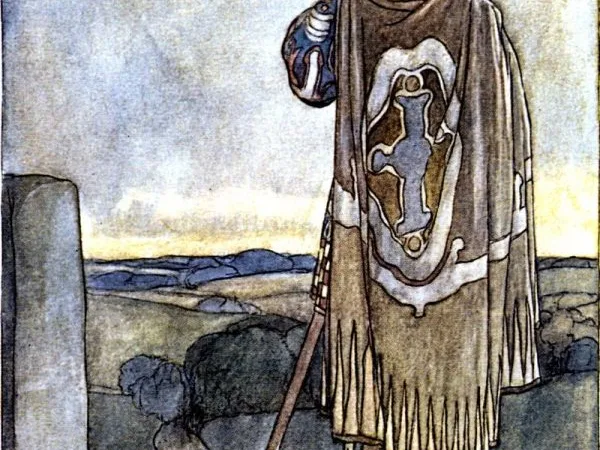- The Dagda is a powerful Irish god, also known as Eochaid Ollathair (“All Father”), Ruad Rofhessa (“Lord of Great Knowledge”), or Lord of the Heavens.
- His name means “good”, and is known as the god of protection, warriors, knowledge, the arts, magic, music, initiation, prophecy, weather, reincarnation, death, fire, the sun, healing, regeneration, prosperity and plenty.
- Sources vary in terms of his family members. In some sources, his father is Elatha and his mother is Ethniu/ Eithne. Also Danu is either seen as his mother or his daughter, probably due to his association with Brigid.
- The Dagda is thought to be the father of Bodb Dearg, Aed Minbhrec/Aed Cáem, Cermait Milbél, Midir, and daughters Áine, and Brigid. He was also the father or brother of Oghma.
- Through his affair with Bóand/ Bóann, he fathered a daughter Breg and son Óengus/Aengus /Angus Óg.
- He was High King of the Tuatha Dé Danann, after his predecessors Nuada and Lugh.
- The Tuatha Dé Danann conquered Ireland from the Fir Bolg and Fomorians, prior to the coming of the Milesians (Celts).
- Prior to the battle with the Fomorians, he mates with the goddess of war, the Mórrígan, on Samhain, in exchange for a plan of battle.
- The Dagda was described as a huge and stocky man, with superhuman strength as well as superhuman appetite. He possessed several magical objects.
- One of them was a great treasure of the Tuatha Dé Danann, the magic cauldron from a magical city of Murias. Known as the Cauldron of Dagda, the Cauldron of Plenty, or Undry, it was thought to be bottomless and left no man unsatisfied.
- Another was a giant club or hammer that could kill several men at once with its head, and bring them back to life with its handle.
- The Dagda also possessed a magic oak harp called Uaithne, or “the Four Angled Music”, used to change the seasons and weather, or to command the order of battle. This is also the harp that is seen on many Irish flags (and Guinness beer!) symbolizing Ireland to this day.
- He is sometimes likened to the Gaulish god Sucellus, the striker, who is depicted with a hammer and cup.
- He is credited with a long reign as High King of the Tuatha Dé Danann before dying at the Brú na Bóinne, succumbing to a wound inflicted by Cethlenn/Caitlin during the Second Battle of Magh Tuiredh years prior in retribution for the death of Balor.
- He was replaced as King by his grandson, Delbáeth, who fathered the famous matron goddesses of Ireland, Ériu, Banba and Fodla.
Wiki – The Dagda
Timeless Myths – Dagda
Celtic Deities
© West Coast Pagan






